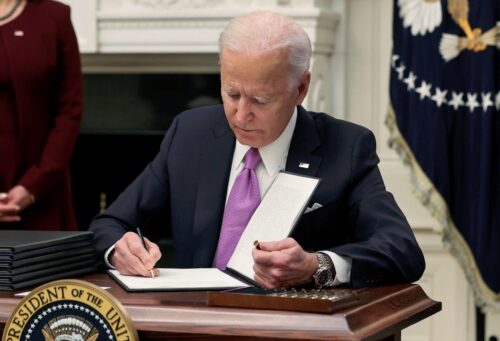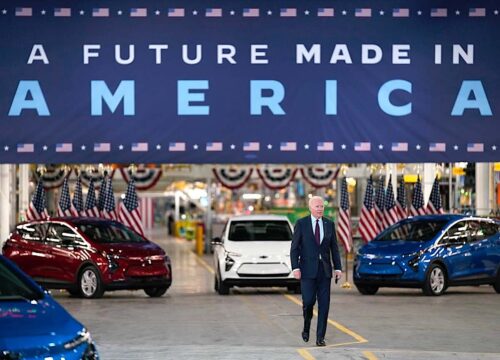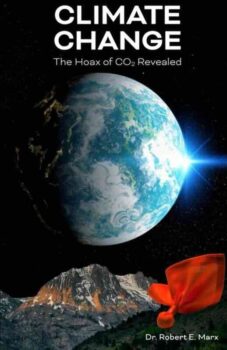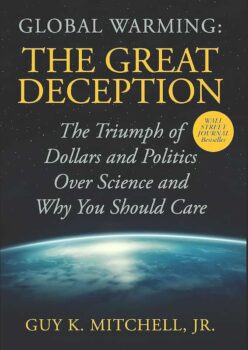
UN officials want the upcoming report to spur more action to fight global warming, but leaked comments seen by Climate Home News show the Trump administration isn’t totally buying it.
The U.S. submitted nine pages of comments to the UN over its soon-to-be-published report on from the Intergovernmental Panel on Climate Change (IPCC) on keeping future global warming to below 1.5 degrees Celsius above pre-industrial levels.
While the leaked comments don’t fully represent the Trump administration’s position, officials criticized key aspects of the upcoming IPCC. Government comments are supposed to be kept confidential.
U.S. officials criticized the summary for policymakers (SPM) section, which lays out the supposed consequences of future warming and policy pathways to limit such climate change.
“The SPM narrative fails to communicate the scale of the global technological and economic challenge to meet the 1.5C objective,” the U.S. wrote in its comments.
“The SPM implies that these challenges will be minor and any trade-offs easily resolved, whereas the underlying report and the published literature clearly demonstrate the scope and depth of these barriers to limiting emissions consistent with 1.5C,” officials added.
The Trump administration also called into question the climate models used to estimate future impacts of any warming.
Indeed, climate models have come under increased scrutiny in recent years since they’ve consistently over-predicted warming.
“There is no discussion — or a summary thereof — in the SPM regarding the credibility of models (or methodologies) used in the report to project future impacts,” U.S. officials said, adding that “most” models incorrectly predicted the rate of warming since the 1990s.
U.S. officials aren’t the only ones to call into question the plausibility of the UN’s views. A paper by University of Colorado professor Roger Pielke Jr. laid out many of the problems with the UN’s assumptions about keeping global warming in line with the Paris accord.
“In the face of ongoing failure to reduce global greenhouse gas emissions, they are rejiggering the way they define the climate change challenge as if that will somehow allow policies that have been failing for over 25 years to become successful,” Pielke wrote in his paper.
Pielke noted the goal of the Paris climate accord of keeping future warming below 2 degrees Celsius can’t be met without what’s known as bioenergy with carbon capture and storage (BECCS).
BECCS is essentially removing CO2 from the atmosphere through growing plants, which are then burned for energy. Those emissions are then captured and stored underground.
There’s just one problem. While the IPCC assumes BECCS can be deployed on a grand scale, Pielke’s research showed BECCS at a “massive scale is science fiction — like a lightsaber, incredible but not real.”
BECCS is only one of the problems Pielke discussed in relation to the UN’s global warming goals. Pielke also noted the UN’s climate projections overestimate energy efficiency gains and use unlikely, “worst-case” scenarios to tip the cost-benefit ratios to favor their “science fiction” policies.
“Climate policy business as usual means that we go exactly where we have been headed, repeating the same behavior, and modifying our assumptions to accommodate our continuing failure to make progress,” Pielke wrote.
UN report authors received about 42,000 comments while drafting the document. The report is slated for release in the coming days and will be used by politicians and environmentalists to push for more green energy and anti-fossil fuel policies.
U.S. officials also criticized the UN for leaving out the benefits of fossil fuel use, and for using the word “substantial” to define the impacts of warming above 1.5 degrees Celsius.
“The SPM fails to note that recent decades have seen the fastest declines in global poverty in both numbers and proportion of population even as fossil fuel use has exploded,” officials wrote. “The fastest and greatest declines in poverty have occurred in China and India even as they have ramped up their use of fossil fuels.”
“It’s a major problem to use the term when discussing the difference in impacts at 1.5C versus 2C of warming,” officials wrote. “Saying losses [in species] are ‘substantial’ could be interpreted as a 10% in the minds of some readers and 75% in others.”
Read more at Daily Caller



















The IPCC relying too much on fake data and junk science and the tampering by a few underhanded persons